[Recently Joe Casey conducted an email interview with a writer for a now deceased site. I expressed an interest in running it on the Beat, but was unable to contact the original writer despite repeated attempts. As its general internet principle that the interviewee owns the written answers, I agreed to run Joe’s answers, as he’s always a provocative creator with a lot to say about the state of the industry. I also added a question about the debut of Officer Downe, the film based on the Joe Casey/ Chris Burnham comic and directed by M. Shawn Crahan. The film debuts this Friday as part of the LA Film festival; independently financed it’s an unusual alternative to the blockbuster mindset of most comics-based films and TV shows. I’m included some stills from the movie to accompany this interview.
Of course, Casey is no stranger to blockbusters. As a member of the Man of Action creative team he’s co-created Ben 10, Generator Rex and Big Hero Six. His comics writing includes the recent Valhalla Mad and the ongoing book Sex for Image comics, drawn by Piotr Kowalski. The title has given rise to endless provocative headlines, such as the one on the article you are reading now.]

CASEY: Oh, hell yes. There’s still plenty of magic… just on different levels than there used to be. I still get a huge buzz when I can come up with some weird idea, knowing that I’m in the extremely privileged position to be able to develop it and actually make it happen and get it out into the world. When you say comics are a sacred thing, I feel the same way about creating them. I do everything I can to protect that process from whatever outside forces might threaten it. That includes talking about it too much. Sometimes I can’t help myself, but most of the time I manage to keep it in the mystery box where it usually belongs. As I’ve said many, many times before, comicbooks are still the greatest storytelling medium ever invented. It’s something I’ve obviously — and happily — dedicated most of my life to.
On “deconstructing” comics:
JC: I’ve never been critical of the form, per se. The way the business side is run sometimes drives me up a wall (even as I’m simultaneously fascinated by it), but that’s very different from the actual medium of comicbooks. My love of the medium has never wavered. If anything, it’s gotten stronger. Its purity as an art form becomes more and more clear to me as time rolls on.
On the fan side, I still have mad love for the superhero comics of my youth. I still read them, still study them, still learn from them. But it’s like listening to a band like Van Halen. I’m still all in when it comes to Fair Warning and 1984. Those albums still speak to me, even decades after they were released. But I have no interest in buying any new Van Halen music and probably never will again.
And while there are certainly comics that’ve come out since I was a kid that mean a helluva lot to me, I’m not part of that dedicated Wednesday crowd anymore. But I am a professional in this field, so I thankfully discovered deeper rewards to doing this kind of work beyond the simple “fan-turned-pro” satisfaction that, admittedly, fueled me quite nicely in the early years. These days the most significant reward is that I can continue to explore this medium in ways that feel new and different and exciting to me.
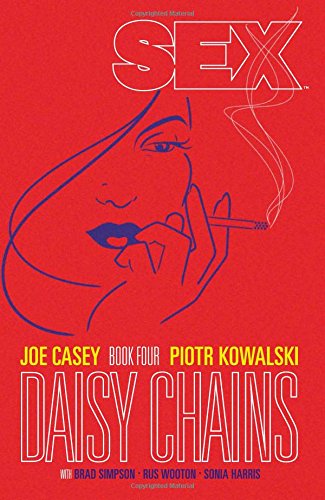
JC: I think what you’re going through is a very natural thing. It’s evolution. Even for those of us who grew up loving the iconic superhero comicbooks and never thought we’d move past them — and I would absolutely count myself among that group — the time has come where we’re finally seeing these things with eyes wide open and admitting to ourselves that we’re probably not the audience for them anymore. Really, that’s what Sex is fundamentally about… an adult finally outgrowing the fascinations of his own youth, specifically a superhero lifestyle. Simon Cooke is basically a metaphor for all of us superhero readers finally realizing that what’s being offered — specifically by the Big Two — doesn’t hold much of an appeal for us anymore. It’s a sobering realization, but it’s definitely happening. The dissatisfaction with corporate superhero IP’s — in monthly comicbooks — is getting deeper and more widespread.
I loved the Avengers when I was a kid. It was my favorite comicbook by far. I even loved the Busiek-Perez relaunch when I was a lot older and just starting out as a professional. It had some of that same magic for me. But these days, I have to admit to myself that there’s nothing that any current Avengers comic is going to give me that will ever come close to being as satisfying as it was when I was younger. And, listen, Mark Waid in particular is a goddamn great comicbook writer and is undoubtedly doing a fantastic job with the gig. So it has absolutely nothing to do with quality. In fact, superhero comicbooks are probably more expertly crafted across the board than they’ve ever been, in terms of the talent working on them. But I just think I’ve grown past the subject matter. Or worse, I’ve seen it all before. I’ve already read too many corporately-owned superhero comics in my life to be expected to care. As a professional, I’m able to write ’em… but as a fan, I just can’t read ’em.
The interesting thing about my generation of readers — still probably the dominant demographic buying Marvel/DC product for the past fifteen or so years — is that superhero comics “grew up” just as we did. Where previous generations tended to cycle out of the hobby in their early teens (making way for a new generation of young kids to come in and appropriately take these corporate superheroes into their hearts), mine didn’t have to stop reading Batman comics in the 80’s, because we were given Frank Miller and Dark Knight Returns and Year One. Superheroes — and the creators making those comics — were providing us with material that spoke to our own ongoing maturation even as it was happening. That’s where things like Daredevil, Watchmen, Elektra: Assassin, Marshall Law, Punisher, Suicide Squad, Swamp Thing, Green Arrow: the Longbow Hunters, the “Five Years Later” Legion of Super-Heroes, the “Kraven’s Last Hunt” storyline in the Spider-Man titles, Arkham Asylum, Animal Man, Black Orchid and Doom Patrol had real currency in the marketplace… they kept us happily locked into that Marvel/DC/superhero habit. It was the era of the literate superhero comicbook, so to speak. Subsequently, this soon begat what I believe was the final, significant blast of young readers to start reading comicbooks — a generation of Tweens (mostly male) that might’ve been aware of the more “adult” superhero material but needed it filtered through a more palatable, age-appropriate vehicle. That’s where the first Image Comics creators enter the picture, first with their Marvel work, then with their initial wave of Image books filling that niche perfectly: violent, sexy, lightweight, fast-paced superhero comicbooks that fed that young demo way better than Marvel and DC could at the time (so naturally, both publishers quickly followed suit, stylistically, sucking in a lot of these new readers with their own Image-style takes on the iconic superheroes).
Meanwhile, readers of my generation were moving on to more adult, non-superhero fare that an imprint like DC’s Vertigo specialized in. Not to mention, getting turned on to indie creators like Peter Bagge, Dan Clowes, the Hernandez Brothers, etc. But, of course, when the Quesada/Jemas “Nu Marvel” started hiring all those 90’s Vertigo writers to revamp their superhero titles (not to mention the random “alternative” or “indie” cartoonist), my generation of readers — now mostly adults — were enticed to once again embrace those same ol’ corporate superhero IPs that we’d pretty much abandoned a decade before. I mean, I would’ve never read X-Men if Grant Morrison wasn’t writing it (notice how I conveniently leave out the fact that I was also writing the X-Men at that time?). So we all ended up hanging on even longer. And with no new generation of kids coming in to take over the readership, the Big Two publishers are forced to continually cater to my generation, to mine our specific nostalgia… because we were the only ones really buying their shit. For thirty years, we were the so-called “Wednesday crowd” that I mentioned before, faithfully showing up in comic stores every week to buy the newest releases. And what you — and many others — are probably feeling is simply the obvious result finally catching up with everyone. For example: I hear that, in the current Spider-Man comics, Peter Parker is some sort of corporate CEO now. My response is: who fucking cares?!
Now, before anyone — especially Dan Slott — thinks I’ve suddenly turned into John Byrne… I’m actually really encouraged by what’s happening. All this is ultimately a good thing. Because all of us who are feeling this obvious dissatisfaction with corporate superhero comics have an opportunity here to change the industry. If we’re still the major demographic, then we’ve got the muscle to alter the narrative. That’s where Image Comics, Fantagraphics, First Second, IDW, Boom, Dark Horse, Oni and other independent publishers all come into play. I really believe that today’s underground can become tomorrow’s mainstream… if that’s what we all want to happen. And I don’t mean just us readers. Retailers have to embrace this change, as well. They have to accept the dissatisfaction in themselves (and we all know they’re feeling it… it’s pretty much all they talk about) and identify it more clearly in their customers, so together they can help move things in a new, better direction. There’s all sorts of new voices, new approaches, new visions out there to keep our comics-loving fire burning just as brightly as ever. We just need to look past the corporate publisher noise that can be so incredibly loud and distracting. It’s like a bad habit that’s been incredibly hard to break… but if Gary Groth could do it, anyone can.
And, listen, if that somehow forces Marvel and DC to finally figure out exactly how to bring in that new generation of young kids — the age demo their most popular superheroes are ultimately best suited for — just to save their own asses, then we all win. I still believe that mainstream superhero comicbooks should speak to young readers first and foremost. When they don’t — and right now, they don’t — it just feels weird to me.
On the Title “Sex” and its taboo nature:
JC: Aside from being responsible about it when it comes to younger audiences, I have no idea why [it’s taboo.]. It’s part of human nature. An intrinsic part, when it comes down to it. But America in particular has always been a little too puritanical. I’m not all that bothered, honestly, because in a culture that’s too permissive, Art tends to stagnate. Artists need boundaries to push against.
As for the comicbook itself, obviously the title is somewhat provocative (even in this day and age), and the series’ content is definitely aimed exclusively toward adult readers… but if you think about it, there are multiple definitions of the word, “sex”. Sure, it could refer to intercourse or other similar physical acts. But it also refers to gender. And, in some respects, the word can act as a shorthand term that’s conceptually representative of true intimacy between people. It’s a moment where people are often at their most vulnerable with each other. In the series, I’d like to think I’m exploring all those definitions simultaneously. At the end of the day, I never looked at it as a laugh or as taking on some sort of cultural taboo. For me, the word was simply the best, most direct title for this particular series.
On comics and diversity:
JC: I think that, right now, the concept of diversity — in any media, but especially comicbooks — is being used mainly as a marketing hook. Now, if that’s what it takes to truly open things up, then okay, I guess. But it’s just very sad on some levels. For me, personally, I’m seeing plenty of White Guys In Power using diversity as a way to… I don’t know what. Sell more product? Probably. Assuage their own discomfort with how unbalanced things still are? I don’t know. Maybe.
Then again, why is it such a big deal to hire a Black writer exclusively to write a Black superhero or a female writer to exclusively write a female superhero? Obviously, those writers might have deeper insight into those characters based on personal life experience, but is that really all they’re being offered by the big corporate publishers? I think most sane people would agree, a good writer is generally supposed to be able to write any kind of character, regardless of background. After all, I don’t feel constrained to only be writing Caucasian characters in my own work. Never have. So isn’t that some weird form of stereotyping right there? Why isn’t a Black writer or a female writer getting hired full-time to write Iron Man or Batman or Justice League any of the big icon titles? Maybe the White Guys In Power feel like it’s not marketable. Which makes no sense, since a name in a credit box has no color and doesn’t necessarily suggest gender, either. It should be the talent of the creators, the quality of the work that matters. Besides, corporate IP comicbooks are generally editorially-driven, anyway. Having said that, it’s at least heartening that DC hired Priest — a very cool comicbook writer, imho — to write Deathstroke. But that shouldn’t be such a notable exception. Like I said, it’s very sad. Growing up with comicbooks, I never assumed they were anything except all-inclusive — on both the fan and pro side. It was disappointing to enter the business as a professional and find out that wasn’t the case at all… that misogyny and racism and general close-mindedness was as rampant in this industry as it probably is in any other. Maybe even more so.
In terms of Sex… personally, I think the overall cast is about as diverse as it gets when it comes to race, gender and sexual orientation. Saturn City is, in an admittedly ham-fisted way, meant to be played as a microcosm for society in general, and all its varied facets. But I’ve never made a big deal about it. Not just because of the reasons I cited above, but because I guess I feel like the book should succeed (or fail) on its own merits. I don’t need or expect a pass just because Keenan is one of the main characters.
On The Breaks, a street gang in Sex reminiscent of the cult film classic The Warriors.
JC: The Riffs are definitely a huge part of the Breaks’ DNA. I’m a big fan of the original Warriors flick (not that abomination of a “director’s cut” that came out on DVD a while ago… avoid that version like the plague, cinephiles!). So much so that the Breaks’ leader, Masai, is named directly after the Riffs’ leader — which was never said out loud in the actual movie. Beyond that, the street gang stuff in Sex is pulled from a lot of exploitation films from the 70’s and beyond that mainly dealt with urban culture in a… well, a less than realistic way. I liked the idea of taking some of those stereotypes and playing them somewhat straight. And the tension between the Breaks and the Skins is, of course, partially racial in nature. That’s something I wanted to explore in the book, as well, but hopefully from a slightly different angle that you might expect.
On the letters section in Sex, that often contains personal anecdotes, and connecting with readers:
JC: I’ve done my share of pontificating throughout my career, whether it was in online opinion columns or in interviews or in the backmatter of various book of mine. I’ve had my moments of just being a big fuckin’ loudmouth, too. But the truth is I’m just as much of a fan of other people writing about comicbooks as I am the comicbooks themselves. Sometimes more so. Critical writing, essays, think pieces — especially about subject matter that might not necessarily warrant that kind of scrutiny (like rock n’ roll or comicbooks or pop culture in general) — are often my favorite kind of writing to read. Lester Bangs and early Chuck Klosterman were hugely influential… Bangs for how he wrote about the music he was passionate about, the language that he used, and Klosterman for what he chose to write about. As this interview undoubtedly suggests, I’ve got a lot of stray thoughts rattling around in my skull. It’s nice to be able to get them out once in awhile. I’m exorcizing my demons! Not to mention, I like to give readers as much content as possible, to make the single issues a more complete entertainment package, if I can.
On the proliferation of comics as source material for film and TV:
JC: I think it’s fine. Hell, I don’t have too much room to talk, considering that I’m actively making those exact kind of movies. But as far as their current pop cultural dominance, I think it’s fine. It’s no better or worse than any other phase that Hollywood goes through. Remember, there was a time — way before my time, actually — where Westerns were proliferating through pop culture like they were going out of style. Books, movies, radio dramas, television, merchandising. And then, eventually, a saturation point was reached and they did kinda go out of style. The Western’s dominance of the pop cultural landscape came to an end. That doesn’t mean no one ever made another Western again… in fact, some of the greatest Westerns of all time were made long after their heyday in Hollywood. I’m pretty sure it’ll be the same with superheroes, too.
On the potential for more R-rated comics material in the wake of Deadpool and whether that validates books like Sex.
JC: It’s just another in a long line of examples where something comes along and unexpectedly makes a big impact and lots of money, leading directly to everyone scrambling around trying to duplicate that success. But, really, I never really looked much outside of my own mind for any kind of validation in my work. It’s tough enough to find it there.
On the Status of Officer Downe and other ongoing projects:
JC: We’re right at the tail end of post-production on the Officer Downe feature film, based on mine and Chris Burnham’s graphic novel from a few years ago, getting ready for the world premiere at the Los Angeles Film Festival on June 3. Beyond that, just a handful of new, creator-owned comicbooks that have been percolating for the last few years. I’ve been laying kind of low when it comes to releasing new work… but, trust me, I’ve just been gearing up behind the scenes to fuck shit up again.
On what he learned while making an indie film:
JC: I would say that, so far, what I learned is very similar to what I now know about comic books… which is that making the thing is the important part. I like to make stuff, plain and simple. Between writing, producing and guiding the film through the very last gasps of post-production, it was a big, fat challenge and that in itself is a huge part of how I personally get my rocks off. I know that definitively about myself. And listen, it’s totally fine when comicbook creators option their IP and sit back and let the filmmakers work it all out on their own (for better or worse), but that’s just not my gig. My deal with Mark Neveldine and Skip Williamson — way back when they first approached me about the graphic novel — was that I wanted to make the movie with them, right alongside them. And that’s exactly how it played out, even as Clown jumped on as director and Kim signed on to play Downe. We all made this thing together. So here we are now. The LA Film Festival premiere screening on June 3 sold out, so they’ve added a second screening on June 7. After that, I have no idea what’s going to happen with the film… but it almost doesn’t matter, because I’m still buzzing on the simple fact that we actually made the goddamned thing.


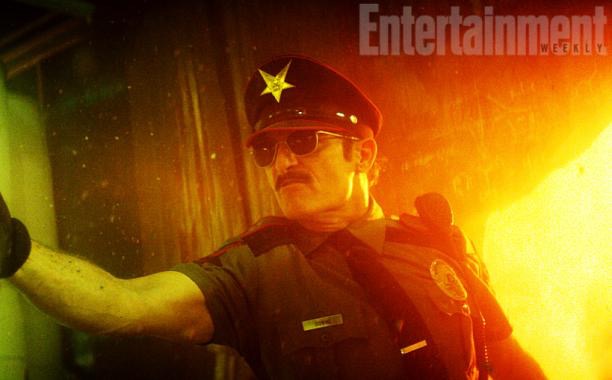
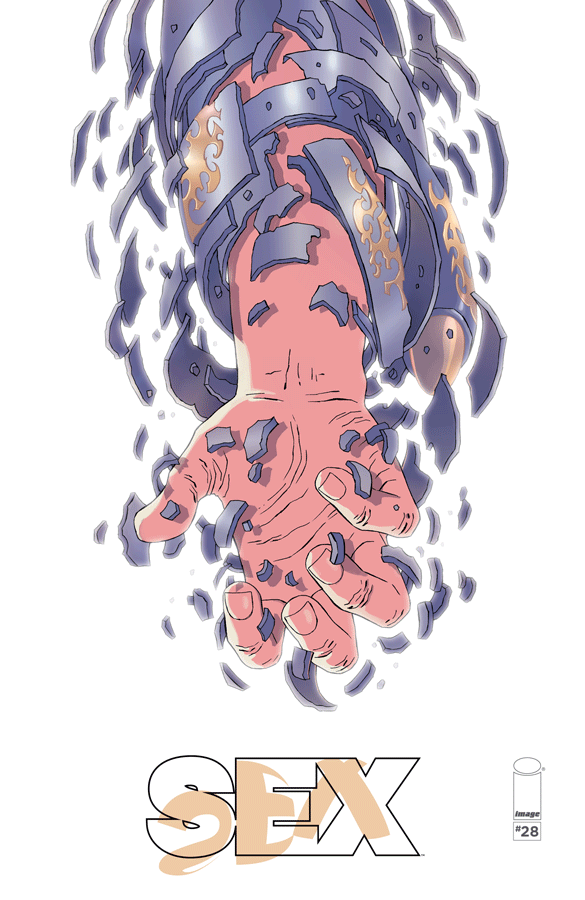
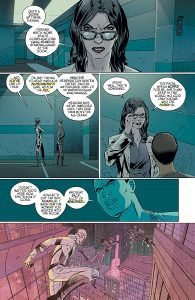
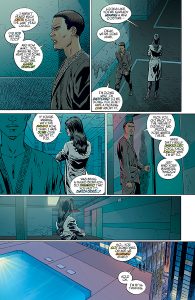
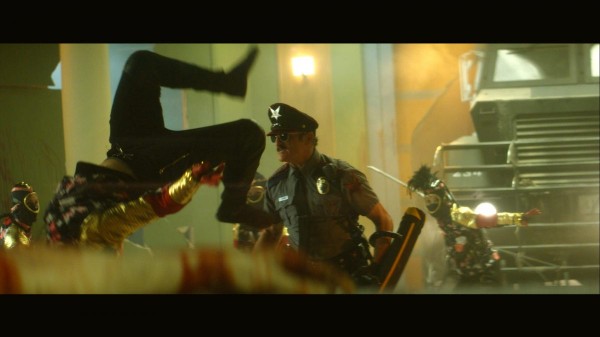
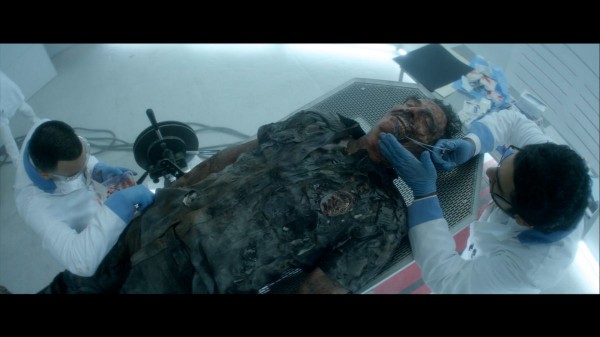
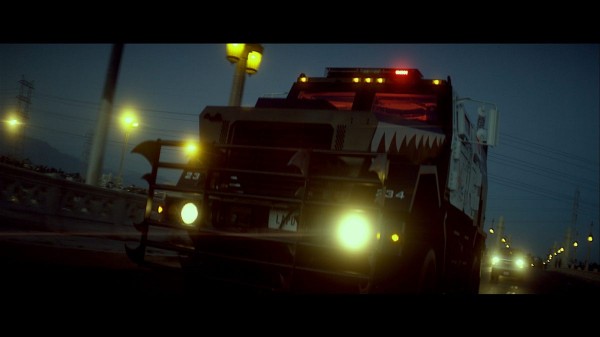
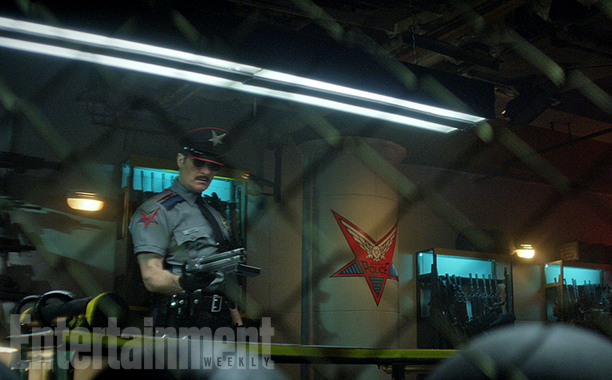
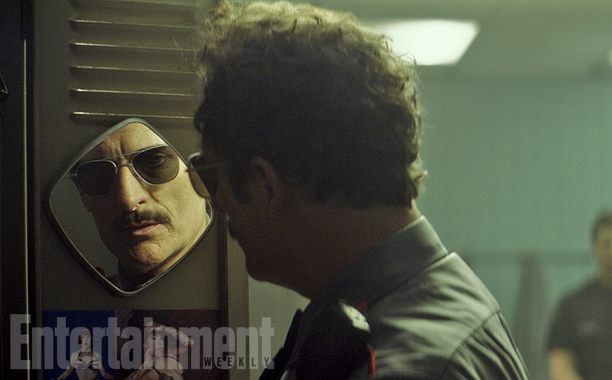
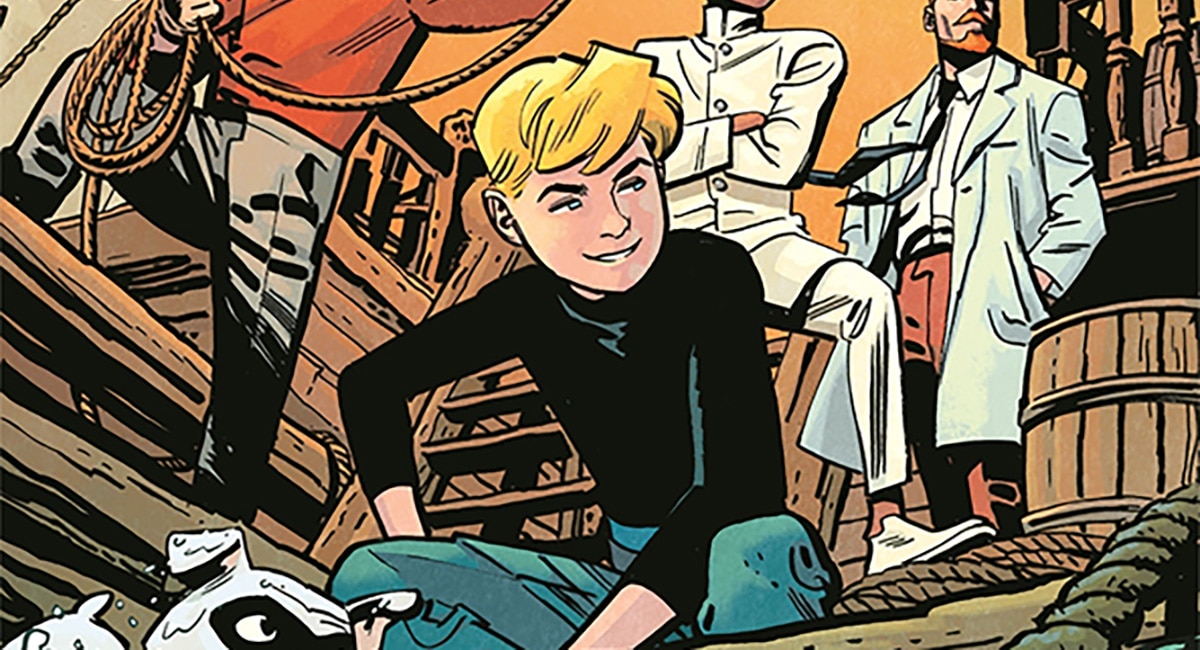
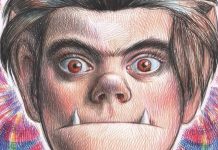




I feel the exact same way he does about the Big 2 and superhero fatigue. It’s the same old thing and characters aren’t allowed to grow or progress. Luckily there are a lot of great books from indie publishers, and that’s mostly what I read now.
heeeeeeeeeeeelllllllllllllllllllllooooooooooooooo everybody how are you doing today.
Mkay bye
hi im naruto uzimaki i no taijutsu
Comments are closed.